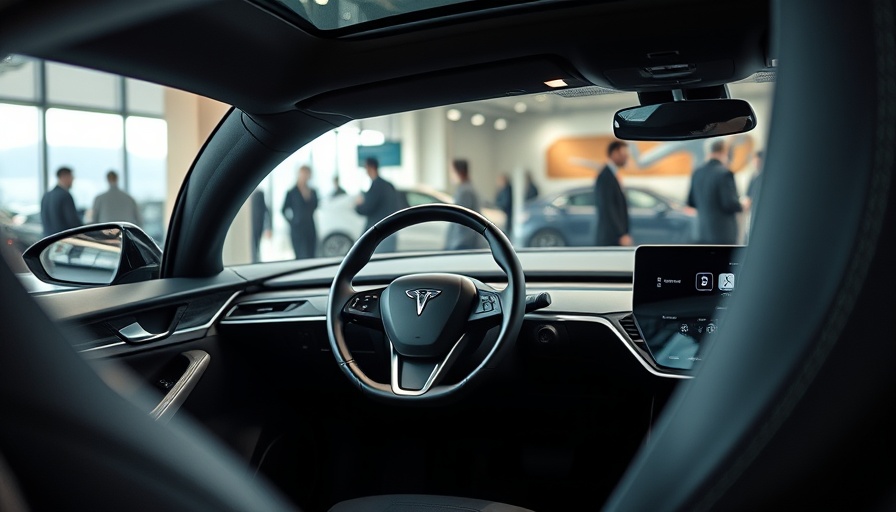
The Circular Economy: Redefining Luxury in the Automotive World
As the global economy shifts towards sustainability, luxury car manufacturers are embracing circular solutions that not only benefit their bottom line but also contribute significantly to environmental preservation. The concept of a circular economy entails rethinking traditional manufacturing processes, emphasizing reducing waste, reusing materials, and recycling products. For boutique hospitality professionals, this shift in manufacturing mindset presents a unique opportunity to align their businesses with sustainable practices that resonate with eco-conscious travelers.
Why Circular Solutions Matter to the Hospitality Industry
The luxury automotive market's move towards sustainable innovation is not just a trend; it reflects a growing awareness among consumers about the environmental impact of their choices. As travelers increasingly prioritize sustainability in their leisure choices, boutique hospitality professionals can leverage similar principles of corporate social responsibility in their own operations.
Insights into Sustainable Innovations
Companies like Volvo and BMW are leading by example, integrating the circular economy into their supply chains. Volvo's commitment to becoming a fully electric and circular car manufacturer by 2030 showcases a fundamental shift in how vehicles can be produced with minimal waste. Their emphasis on sustainable packaging further illustrates how luxury brands, traditionally seen as wasteful, can implement rigorous zero-waste strategies. For hoteliers, similar innovations can be adopted through sustainable sourcing and eco-friendly practices that not only reduce costs but enhance guest experiences.
Exploring Regenerative Business Models
A regenerative business model pushes beyond just sustainability; it seeks to restore and rejuvenate natural biodiversity. This aligns seamlessly with market trends favoring experiences over material goods, particularly in hospitality. For example, using local materials and building practices helps minimize transport emissions while fostering community relationships that keep resources local. As this model gains traction in the automotive sector, boutique lodging operators should explore partnerships with local farms and artisans, reflecting a commitment to the land and its inhabitants.
Adapting Luxury Marketing Strategies for Sustainable Practice
The luxury market's paradigm shift serves as a template for boutique hotels seeking to connect with a discerning clientele. By promoting initiatives aimed at eliminating waste—through strategies like upcycling hotel amenities or offering zero-waste dining options—hospitality professionals can effectively market their eco-credentials. This promotes a brand narrative that aligns with modern consumer values, encouraging guests to choose their services over competitors.
Common Misconceptions and Myths about the Circular Economy
Despite the benefits, misconceptions about the circular economy persist. Some hospitality professionals may believe that integrating sustainable practices is cost-prohibitive or logistically challenging. However, numerous case studies demonstrate that businesses can often achieve cost savings through waste reduction and improved operational efficiencies. Investing in sustainability not only supports corporate social responsibility but can enhance brand loyalty and customer satisfaction.
Practical Insights: Actions for Hospitality Professionals
1. **Assess Your Supply Chain**: Begin by reviewing your current supply chain for ways to implement sustainable packaging and sourcing. 2. **Focus on Guest Education**: Engage guests with workshops or programs that highlight sustainable practices within your operations. 3. **Collaborate Locally**: Form partnerships with local businesses to support regenerative practices, making your operations not only sustainable but also integral to your community.
The luxury automotive industry's moves toward a circular economy provide valuable lessons for boutique hospitality professionals seeking to align their operations with sustainable practices. Using innovative approaches could significantly enhance the guest experience while promoting environmental stewardship.
As these changes take root, consider how adopting similar principles of sustainable innovation can elevate your lodging business. The hospitality industry has a profound ability to shape consumer perceptions and choices related to sustainability. Embrace this chance to lead in one of the most impactful sectors.
 Add Row
Add Row  Add
Add 




Write A Comment